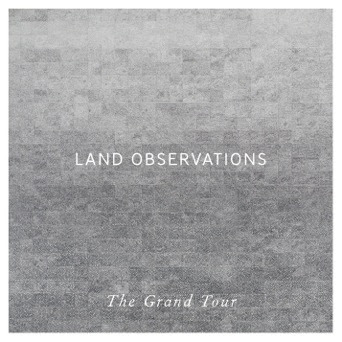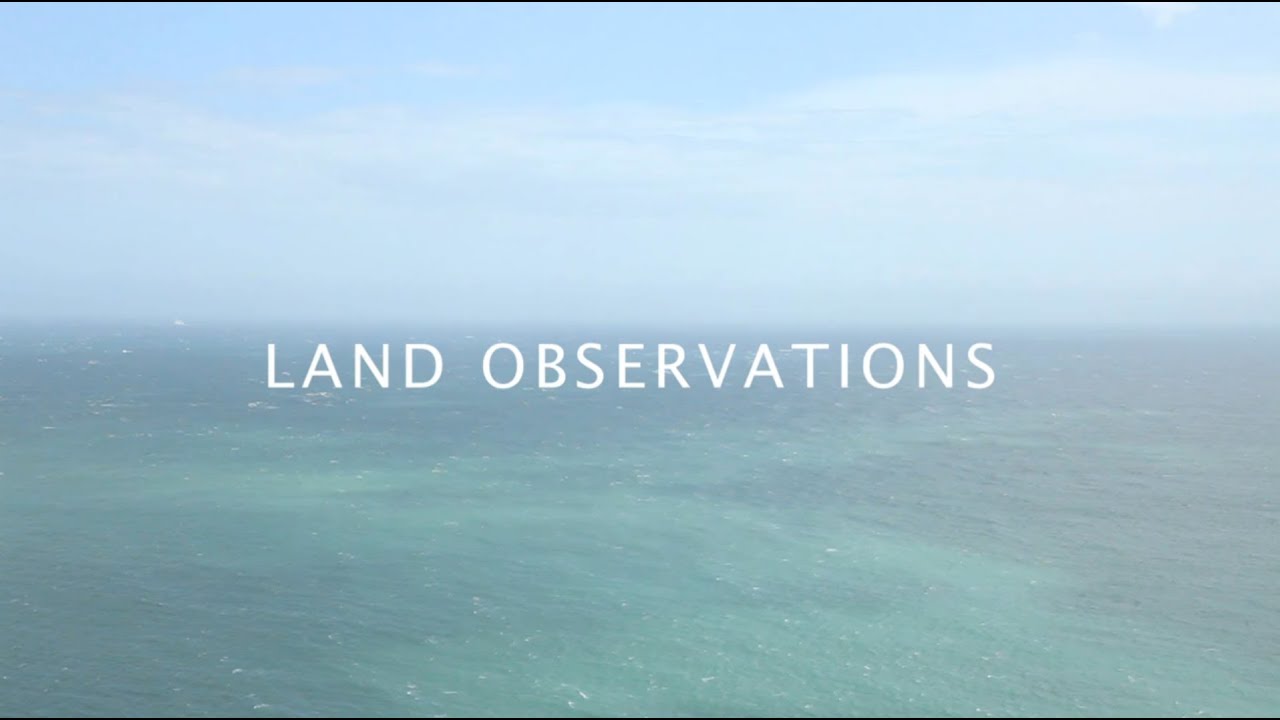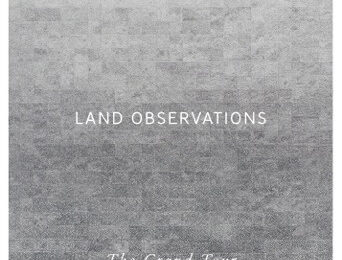Following up on his 2012 debut as Land Observations, Roman Roads IV-XI, musician-cum-fine artist James Brooks will release The Grand Tour next Monday, July 28, via Mute. A progression of the previous album’s sonic navigation of the titular thoroughfares, the new record is named after the toff art-hoovering perambulation around Europe popular in the 17th-19th centuries. It sees Brooks reprising his sole-guitar set-up for a set of looped, layered compositions, occasionally touched by the gentle propulsion of motorik rhythms, following a path moving from ‘On Leaving The Kingdom For The Well-Tempered Continent’ via the Dutch lowlands, streets of Austria, Swiss mountain passes to the closing ‘Return To Ravenna’. We asked Brooks to tell us more about how the album came together, so read that below, stream the album in full above and pre-order it from the label.
Did you adopt a change of approach from Roman Roads IV-XI for the new record? Were there any new elements introduced into the guitar and loop pedals set-up?
James Brooks: I wanted to retain the self-imposed limitation of one electric guitar generating the sound sources. Again it hinged around a blend of vintage equipment and a few pieces of newer technology. I’m not really interested in too much digital processing; I find it far too clumsy and thin on a guitar. Fundamentally I always wanted to have at the heart of the record, the sound of a stringed instrument. I guess when I analyse what I have attempted to do, there are a lot more intentional drones, layers and counter melodies happening hopefully producing a record of greater intricacy and detail.
It’s interesting that, while your own fine art is abstract – such as the Data As Culture pieces – your subject matter here is something that is historical and related to classical art – why did you pick the Grand Tour?
JB: Yes, good question. For me, the idea of The Grand Tour was quite hard fought. It is fascinating as an idea of the beginnings of cultural tourism, with all its references to classical architecture, painting and sculpture, thus, it felt like a logical extension from the utilitarian antiquity of the Roman Roads record.. Also, I like the way the words The Grand Tour have in some ways sublime and romantic connotations, yet have been absorbed and morphed into our 21st century culture through names of various cars and computer games.. It looms over us without many realising. I was also very keen to make a record about a set route to allow me to construct an imaginary travelogue-style record. The tour was fundamentally quite a specific route through Europe, like any journey, it is actually filled with moments of pastoral wide-open spaces and the natural emptiness of landscape. Thus it’s as much a record about purely the momentum and rhythm of travel – of looking at various things as you move through a space. As you say, my artwork tends to be about abstraction and minimalism, so it was interesting to try and find esoteric ways of representing the idea of travel and tourism, which brought me to the geometric layout of generic holiday postcards as interesting documents of journeys.
Did the recording also involve a lot of research into the tour? Were the track titles, for example, mapped carefully onto its route?
JB: Yes, as I was writing the record, I was reading around the history and concept. The point that I kept coming back to was that as an event, The Grand Tour is fundamentally the start of tourism as we know it – of boarding a plane to go and view things and to experience and be somewhere else for a period of time. i.e. The idea of University students taking the ubiquitous gap year of an expedition across a country. I remember going InterRailing through Europe as a late teenager and that kept coming back into my mind as I was writing the record – of the experiences and sights of a trip like that.
The music and titles were very important in relation to the routes – attempting to plot the journeys that would have been taken. Of course this was easier said than done, because the music was attempting to respond to some historical, geographic characteristics of the title and place being considered. It was like a map as a jigsaw puzzle.
With Roman Roads, you recorded in Berlin, but for the new record you relocated south to the Bavarian Alps: why the move? What did that enable in the music?
JB: It was brilliant to be in the middle of nowhere recording. My intention was that the physical space would result in a more reflective record – To be somewhere like that of course puts say Dalston and the Kingsland Road into perspective.. (I’m only sorry the track called ‘On Observing The Matter Valley’ I couldn’t make work on the album. But I suppose it’s my ode to where I was.)
Did your experience working with Simon Fisher Turner on the soundtrack to The Epic Of Everest influence you at all?
JB: Yes, it was and is a brilliant project to be involved with. I guess mountains journeys couldn’t help but creep in. I think one of the messages from the Everest documentary is in relation to man’s conquering, yet fragile relationship to nature. One example on the new record would be the track – ‘From The Heights Of The Simplon Pass’ which addresses and revisits the high Alpine route made famous by William Wordsworth’s poem.
Finally, have you got any further plans for live outings of the new record?
JB: Yes, initially I’m playing Rough Trade East on July 30 and The Proud Archivist on August 26. Then there are some logical European dates being booked at the moment.




